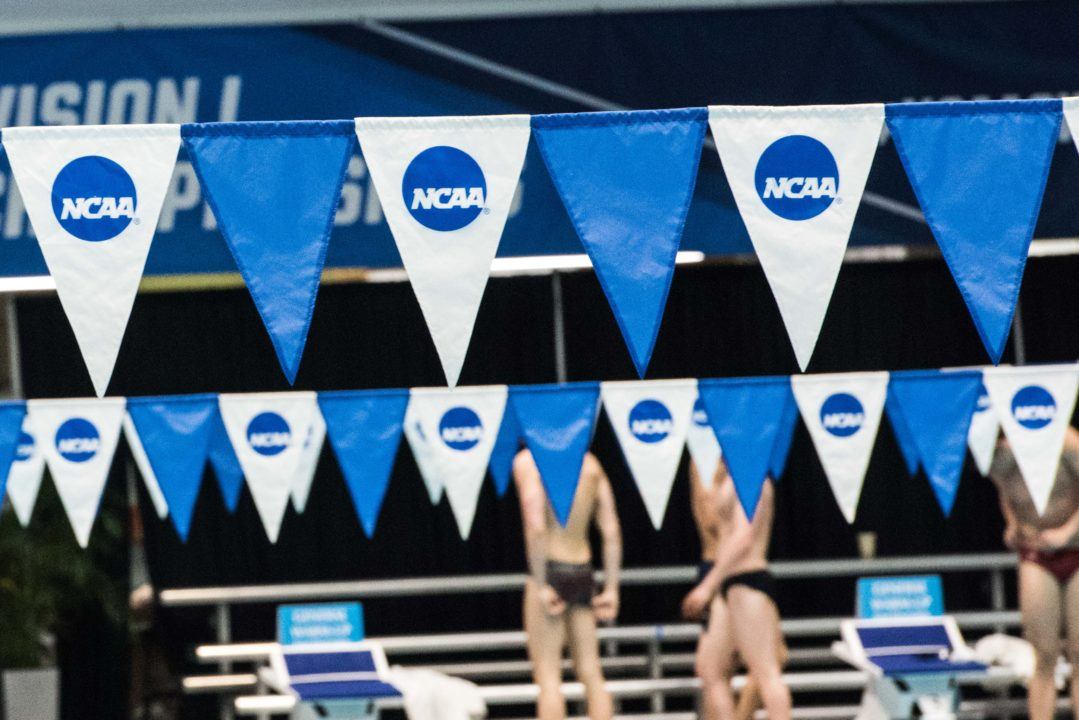You may have heard that today is “Signing Day.” But what does that mean? Who is signing what? Why today? What happens if I don’t have anything to sign today?
For the last six months or so we have written about 630 articles about prospective student-athletes (PSAs) who have made verbal commitments to swim or to dive for a college program. The reason they make verbal commitments is that the NCAA has determined that no PSA in swimming and diving may sign a National Letter of Intent (NLI) until the second Wednesday in November, which is the beginning of the week-long “Early” Signing Period each year. A verbal commitment, then, serves as a two-way promise between the PSA and the school, outlining the terms and conditions that will follow in the official contract, or NLI.
The NLI program is jointly-run by the NCAA and the Collegiate Commissioners Association (CCA). It is used by 650 Division I and Division II participating institutions. The Ivy League (otherwise, a Division I conference) and the entire NCAA Division III, which do not offer athletic scholarships, do not participate in the program. NAIA member schools also have letters of intent for PSAs to sign; each school issues its own letter with its own terms and conditions.
The NLI is a contractually binding agreement between a PSA and an NLI member institution. The PSA agrees to attend the school full-time for an agreed-upon period of time, while the school agrees to provide athletic aid for that period. The NLI used to be good for one year, and had to be renewed each year. For the last several years, the NCAA has allowed multiple-year agreements in NLIs.
An important provision of the NLI program is that once a PSA signs the NLI, he or she can no longer be recruited by other member institutions. If a PSA does not fulfill the NLI agreement, he/she “has to serve one year in residence (full-time, two semesters or three quarters) at the next NLI member institution and lose one season of competition in all sports.”
In swimming and diving, there is an Early Period which lasts one week from the second Wednesday in November to the third Wednesday in November, during which a PSA may sign an NLI. At the conclusion of that week, no NLI can be signed until the “Regular Period” begins in April. NLIs cannot be signed before 7 am of the PSA and Parent/Legal Guardian’s local time on the first day of the signing period. The PSA must sign the NLI and athletics aid agreement within 7 days of the date it was issued; otherwise, the NLI is invalid. (The 7-day signing deadline does not apply if the PSA receives the NLI on the last day of a signing period.)
Early Signing Period for Swimming and Diving, high school class of 2018
- Beginning – November 8, 2017
- End – November 15, 2017
Regular Signing Period for Swimming and Diving, high school class of 2018
- Beginning – April 11, 2018
- End – August 1, 2018
Therefore, while the 2017 Early Signing Period opens today, it doesn’t mean the recruiting season for the class of 2018 ends on November 15, 2017. Many of the biggest and wealthiest programs are in the process of finalizing their rosters for the class of 2022, but there are hundreds of schools that will continue to recruit PSAs all the way through next spring.

If a PSA doesn’t sign a NLI because the PSA doesn’t receive any financial aid, does that PSA have to sit out a year if the PSA subsequently transfers?
Most don’t have to sit out unless you transfer within the conference. If you never signed an NLI, I’m not sure if it would apply even if you transferred within the conference. Someone smarter than me should know though.
google NCAA Transfer Rules. All the details are in there for each level of competition D1 to NAIA
Thanks.
Once a swimmer practices with the team they will have to get a release from that school in order to transfer without sitting out a year for D-I and D-II. Some conference rules require a transfer to sit out if it is within the conference. It has nothing to do with scholarship.
A D-III recruit can self-release without sitting out a year.
Hope this helps. Good luck figuring out the NCAA rule book
Thanks. Sounds like indentured servitude at it’s finest. You pay the school to attend and the school controls what you can or cannot do when you leave.
@Swimming Fan True, but there is more than just scholarship money involved. In many cases a school may have provided admissions assistance to a PSA, even when athletic scholarships are not involved. Those “chips” are limited and schools don’t like to use them on someone who will ultimately not contribute to the team. In a perfect world releases would always be granted when it turns out that the school is not a good fit for the student. But a perfect world it is not.
Athletic admission alone is not enough to commit a student to a school. If the school does not provide some sort of financial assistance, there is no corresponding commitment on the PSA’s part to swim at that school.
remember when signing day was the big REVEAL and we didn’t know where anyone was going until today?